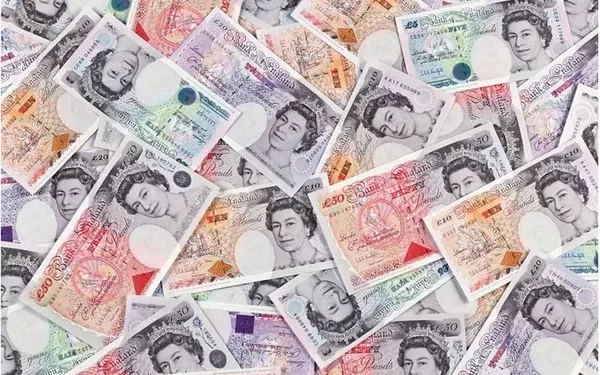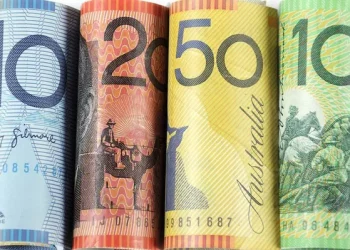The foreign exchange market, commonly known as Forex, is the largest and most liquid market in the world. In this dynamic arena, currencies are traded against one another, influenced by various economic indicators, geopolitical events, and market sentiments. Among the numerous currency pairs traded, the relationship between the English pound (GBP) and the Turkish lira (TRY) is particularly interesting. This article will explore the factors influencing the strength of the English pound in Turkey, the current state of the GBP/TRY exchange rate, and the broader implications for traders and investors.
Understanding Currency Strength
Before diving into the specifics of the English pound and the Turkish lira, it is essential to understand what currency strength means. Currency strength refers to the value of one currency relative to another. A strong currency can buy more of a weaker currency. For example, if one British pound can buy 20 Turkish lira, the pound is considered strong against the lira.
Factors Affecting Currency Strength
Several factors influence currency strength, including:
Economic Indicators: Economic data such as GDP growth, unemployment rates, inflation rates, and trade balances can significantly affect currency strength. A strong economy typically results in a strong currency.
Interest Rates: Central banks influence currency strength through interest rates. Higher interest rates offer better returns on investments denominated in that currency, attracting foreign capital and increasing demand.
Political Stability: Countries with stable governments tend to have stronger currencies. Political uncertainty can lead to decreased investor confidence, negatively impacting currency value.
Market Sentiment: Traders’ perceptions and sentiments can cause fluctuations in currency values. News events, economic forecasts, and geopolitical tensions can all affect market sentiment.
Inflation Rates: A country with a lower inflation rate than other countries will see an appreciation in its currency. Stable prices lead to stronger purchasing power.
The English Pound (GBP)
The English pound is the currency of the United Kingdom. It is one of the oldest currencies still in use and is a significant reserve currency. The strength of the pound can be influenced by various factors, including the UK’s economic performance, political events, and central bank policies.
Recent Trends in the Pound
In recent years, the GBP has experienced significant volatility. Factors such as Brexit, changes in government leadership, and economic recovery from the COVID-19 pandemic have all played a role in shaping the pound’s value. After the initial shock of Brexit in 2016, the pound fell sharply against many currencies, including the Turkish lira. However, it has shown signs of recovery, influenced by improving economic conditions in the UK and shifts in monetary policy.
Economic Indicators
The Bank of England (BoE) plays a crucial role in determining the strength of the pound. By setting interest rates and controlling monetary policy, the BoE can influence inflation and economic growth. Recent economic indicators suggest that the UK economy is recovering, which may contribute to a stronger pound.
GDP Growth: The UK’s GDP growth rate has shown resilience. Following the initial downturn caused by the pandemic, there has been a steady recovery. Strong GDP growth typically strengthens the currency.
Inflation Rates: Inflation in the UK has been a significant concern. The BoE has responded by adjusting interest rates. Higher interest rates can attract foreign investment, leading to an appreciation of the pound.
Employment Rates: The unemployment rate in the UK has decreased, which is a positive sign for economic stability. A strong labor market can lead to increased consumer spending and economic growth.
The Turkish Lira (TRY)
The Turkish lira has experienced significant volatility in recent years. Several factors have contributed to the weakening of the lira, making it essential to analyze its relationship with the British pound.
Factors Influencing the Turkish Lira
Economic Challenges: Turkey has faced various economic challenges, including high inflation, rising unemployment, and political instability. These factors have contributed to a weakening lira.
Central Bank Policies: The Central Bank of the Republic of Turkey (CBRT) has faced criticism for its handling of monetary policy. Decisions related to interest rates and inflation management directly impact the value of the lira.
Inflation Rates: Turkey has experienced soaring inflation rates, significantly impacting the lira’s value. High inflation erodes purchasing power and diminishes confidence in the currency.
Political Stability: Political events in Turkey, including elections and government policies, have led to uncertainty. Political instability can deter foreign investment, negatively impacting the lira.
Recent Trends in the Lira
The Turkish lira has faced substantial depreciation against major currencies, including the pound. Factors such as geopolitical tensions, economic mismanagement, and high inflation have contributed to this decline. The lira has lost significant value, making it important for traders to assess its current standing against the pound.
The GBP/TRY Exchange Rate
The GBP/TRY exchange rate indicates how many Turkish lira can be exchanged for one British pound. A higher exchange rate means the pound is strong against the lira, while a lower rate indicates a weaker pound.
Historical Context
Historically, the GBP/TRY exchange rate has fluctuated significantly. The 2016 Brexit referendum caused a sharp decline in the pound’s value, impacting its exchange rate with the lira. However, over the years, the pound has shown resilience, recovering some of its losses.
Current Exchange Rate Trends
As of the latest data, the GBP/TRY exchange rate indicates that the pound remains relatively strong against the lira. Several factors contribute to this strength:
Economic Recovery in the UK: The UK’s economic recovery has positively impacted the pound. Stronger economic performance often correlates with a stronger currency.
Weakness of the Lira: The depreciation of the Turkish lira against major currencies has also contributed to a favorable GBP/TRY exchange rate. Economic challenges and political instability have led to reduced confidence in the lira.
Interest Rate Differentials: The interest rate policies of the BoE and the CBRT play a crucial role in the exchange rate dynamics. Higher interest rates in the UK can attract foreign investment, further supporting the pound’s strength.
Implications for Traders
For traders and investors, understanding the dynamics of the GBP/TRY exchange rate is crucial. Currency fluctuations present opportunities for profit, but they also carry risks. Here are some key implications for traders:
Opportunities in Forex Trading
Currency Pairs: Traders can take advantage of the GBP/TRY currency pair by analyzing economic indicators and market trends. Understanding the factors influencing both currencies can lead to profitable trades.
Hedging Strategies: Traders can use hedging strategies to protect against adverse currency movements. By taking positions in both the GBP and TRY, traders can mitigate risks associated with currency volatility.
Market Sentiment Analysis: Monitoring market sentiment and geopolitical events is essential for successful trading. Traders should stay informed about news that may impact the GBP/TRY exchange rate.
Risks to Consider
Volatility: The GBP/TRY exchange rate can be highly volatile, leading to potential losses. Traders should be cautious and use risk management strategies to protect their investments.
Political and Economic Events: Changes in government policies, elections, or economic data releases can significantly impact currency values. Traders must stay informed about developments in both the UK and Turkey.
Interest Rate Changes: Sudden changes in interest rates by central banks can lead to sharp currency movements. Traders should be aware of central bank announcements and adjust their strategies accordingly.
Conclusion
In conclusion, the English pound is currently strong against the Turkish lira, influenced by a combination of economic recovery in the UK, the weakening of the lira due to various challenges, and differing monetary policies. Understanding the dynamics of the GBP/TRY exchange rate is essential for traders looking to capitalize on opportunities in the Forex market. By staying informed about economic indicators, market sentiment, and geopolitical events, traders can make informed decisions and navigate the complexities of currency trading.
The strength of the English pound in Turkey reflects broader economic trends and offers insights into the relationship between these two currencies. As the global economy continues to evolve, staying updated on developments will be crucial for successful trading in the foreign exchange market.
Related Topics:
























